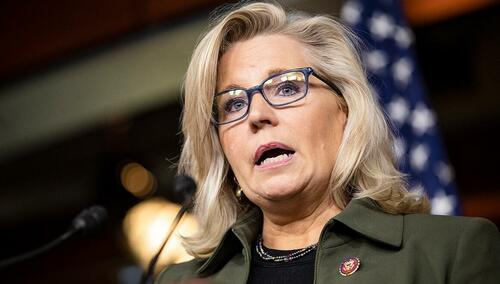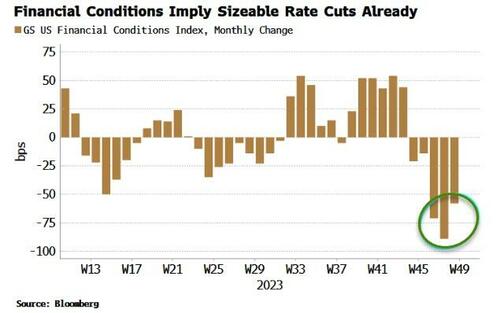Pentagon Chief Slams US Non-Interventionists As Weakening America
Authored by Dave DeCamp via AntiWar.com,
Secretary of Defense Lloyd Austin has hit out at Americans who prefer a less interventionist foreign policy, smearing them as isolationists who want to see the US “retreat from responsibility.”
Austin, a former Raytheon board member, made the comments in a speech at the Reagan National Defense Forum in California on Saturday. “You know, in every generation, some Americans prefer isolation to engagement—and they try to pull up the drawbridge. They try to kick loose the cornerstone of American leadership,” Austin said. Watch below:
The Pentagon chief accused less interventionist Americans of trying to “undermine the security architecture that has produced decades of prosperity without great-power war.” However, most opponents of the US involvement in Ukraine are against the policy because it risks a direct clash with Russia.
Austin has overseen the policy of pouring weapons into Ukraine, which he said shortly after the Russian invasion was designed to “weaken” Russia. The US and its close NATO allies discouraged peace talks early in the war, and mounting evidence suggests the idea was to prolong the conflict.
In his rhetoric, Austin appeared to be targeting Republicans in Congress who have opposed additional funding for Ukraine, although the vast majority of GOP members against the proxy war with Russia favor funding Israel’s onslaught in Gaza and the military buildup in the Asia Pacific that risks war with China.
“And you’ll hear some people try to brand an American retreat from responsibility as bold new leadership. So when you hear that, make no mistake: It is not bold. It is not new. And it is not leadership,” Austin said.
Austin went on to urge Congress to pass a full-year appropriations bill and to approve President Biden’s behemoth $106 billion spending request that includes military aid for Ukraine, Israel, and Taiwan.
“You know, our competitors don’t have to operate under continuing resolutions. And so, doing so erodes both our security and our ability to compete,” he said. “And I also urge you to pass our urgent supplemental budget request to help fund our national-security needs, to stand by our partners in danger, and to invest in our defense industrial base.”
Believe them when they tell you, funding these wars is mostly about enriching America’s Military Industrial Complex.
The plan is to “revitalize” the Defense Industrial Base. Ending the war in Afghanistan was tough on profits.
Note: DIB is the new MIC. pic.twitter.com/3113T5hlrM
— Thomas Massie (@RepThomasMassie) December 4, 2023
On Monday, Rep. Thomas Massie (R-KY), who has voted against both funding the Ukraine war and new military aid for Israel, criticized the administration for citing the “defense industrial base” as a need to continue funding wars.
“Believe them when they tell you, funding these wars is mostly about enriching America’s Military Industrial Complex,” Massie wrote on X, citing a letter from the White House’s Office of Management and Budget. “The plan is to ‘revitalize’ the Defense Industrial Base. Ending the war in Afghanistan was tough on profits. Note: DIB is the new MIC.”
Tyler Durden
Tue, 12/05/2023 – 14:45
via ZeroHedge News https://ift.tt/Noi3I7t Tyler Durden








